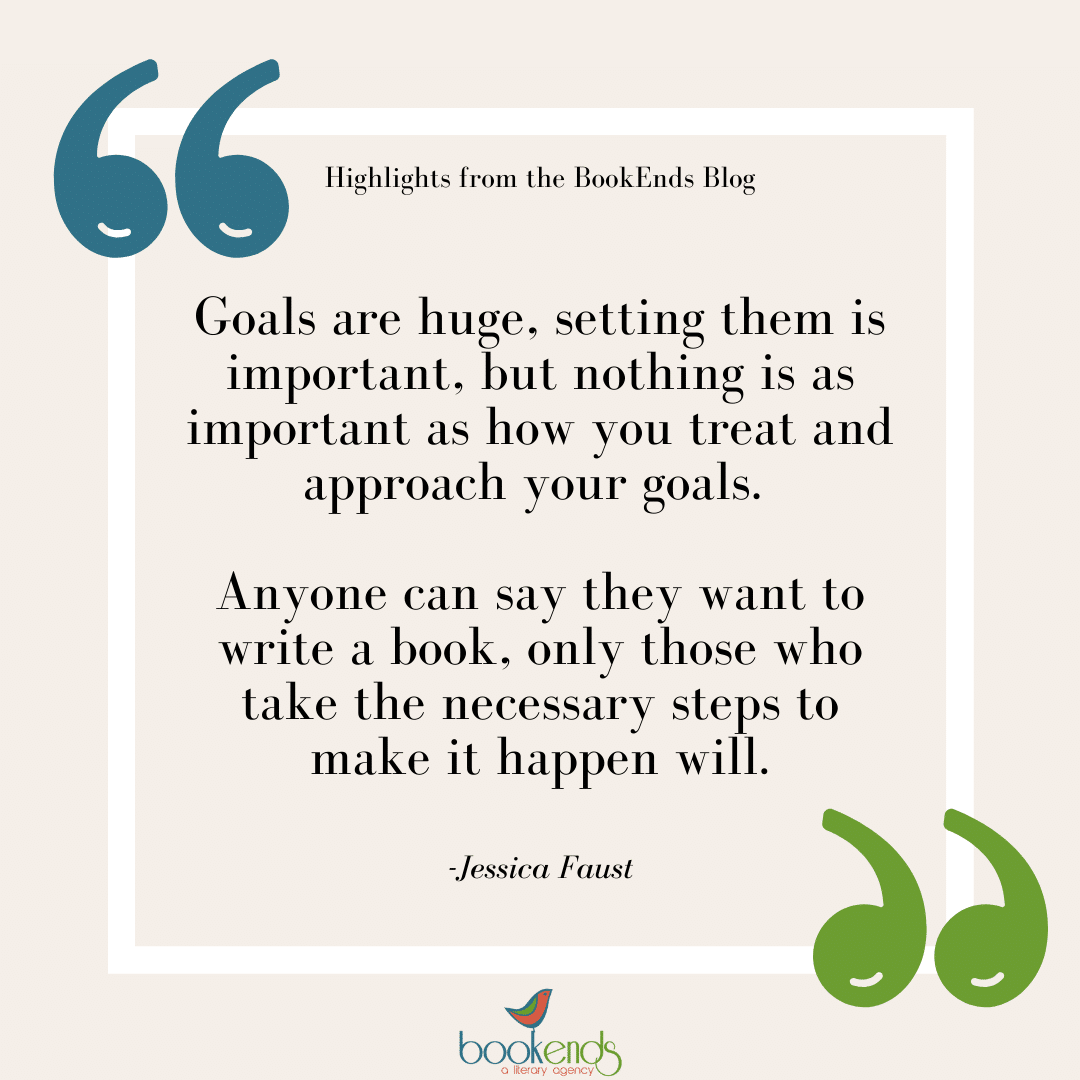Taking Goals Seriously
- By: Jessica Faust | Date: Mar 18 2021

Everyone, in some way, shape or form sets goals. Maybe it’s a resolution to eat better or the goal of write 1,000 words a day. For me, it’s to bring more diversity into publishing and continue to build both my upmarket and nonfiction lists. And eat more fruit.
Goals are great. I’m a big believer and I have seen the fruits (pun intended) of setting them. It was once a goal to have BookEnds Jr, a strong SFF list, and sell a book set in Alaska (I have two).
But I didn’t achieve my goals simply because I set them. I achieved goals because I took each one very seriously, and worked to make it happen.
And because I refused to see any alternative.
Setting a Backup Plan
Each and every time I set out to achieve new goals–whether it was starting BookEnds or training for sports competitions–I never gave myself a backup. There was never an alternative to BookEnds, never a thought of what I would do if I failed. I never gave myself the option to fail.
Setting a backup plan implies that maybe you aren’t as “all in” as you should be. Setting a backup plan gives you an out, a reason to quit, or the excuse to not work as hard as you might need to.
A backup plan means you plan to fail. No backup plan means you have no choice but to win.
How You Approach Goals
When I started BookEnds I thought of myself as an agent from the start. I wasn’t “just starting.” Everything I did, every decision I made was made as if I’d been in the business already for 20 years. I thought to myself, what would they do at Writers House or Curtis Brown? And then I acted as if I were an agent at one of the biggest and oldest agencies out there.
Of course, the best part is that I never worked at any other agency so what I thought, whether true or not, is the way I ran my business. It seems to be working.
How you approach your goals is more important than actually setting them. Writing them down is not enough. If you really want goal-setting to work you need to take your goals seriously. If your dream is to be a bestselling author you need to look at your goals and think, what would a bestselling author do. Would they quit after their first rejection? Well clearly they didn’t because every author has been rejected.
Does a best-selling author publish everything they write? Nope. There are some real clunkers buried deep in every author’s harddrive.
You know what else a bestselling author does? Creates a dedicated workspace to their job–writing. They treat writing time as important, necessary and a priority. And they create a support network–people who encourage, give the raw truth, and support every step of the way.
Goals are huge, setting them is important, but nothing is as important as how you treat and approach your goals. Anyone can say they want to write a book, only those who take the necessary steps to make it happen will.

This post is fantastic. Can I just add, that sometimes it’s okay to re-evaluate the goal and pivot if needed. If your goal is to be a published romance author, but your strength and talent and your passion is in writing biographies, maybe amend you goal to a be published biographer. Not that you have to give up writing romances if that is also your dream. You only fail if you give up completely or if you don’t sit down and write regularly because you are waiting for inspiration or think the story will somehow just appear fully-formed and perfect.
I want to add to not make your goal too specific in that you want a specific manuscript to be your first published work as an author. You can still have the goal of being a published author, you just might need to do it with a different manuscript. Or you want to run in the Boston Marathon. Boston can’t be your first one. You need to run other races before you can make it to Boston.
Jessica, you’ve posted regularly about goals over the years and I have taken each to heart. I want to thank you, as these posts have helped enormously with moving my writing forward, my mentality to the process (query trench is tough).
I agree with you on the backup plans! I never had one, which seems to surprise, even shock, a great number of people. That’s what I tell them:
If you take all the time coming up with Plan B and instead spend it on making Plan A actually happen, it’s much less likely that you need any Plan B to begin with.
This. Every single time you add a post, it speaks to exactly how I think the “professional world of writing” should be. You are gold … and incredibly generous with your knowledge and nuggets of wisdom 🙂 Thank you. This was just the kick in the pants I needed to start submitting again, after a significant revision.